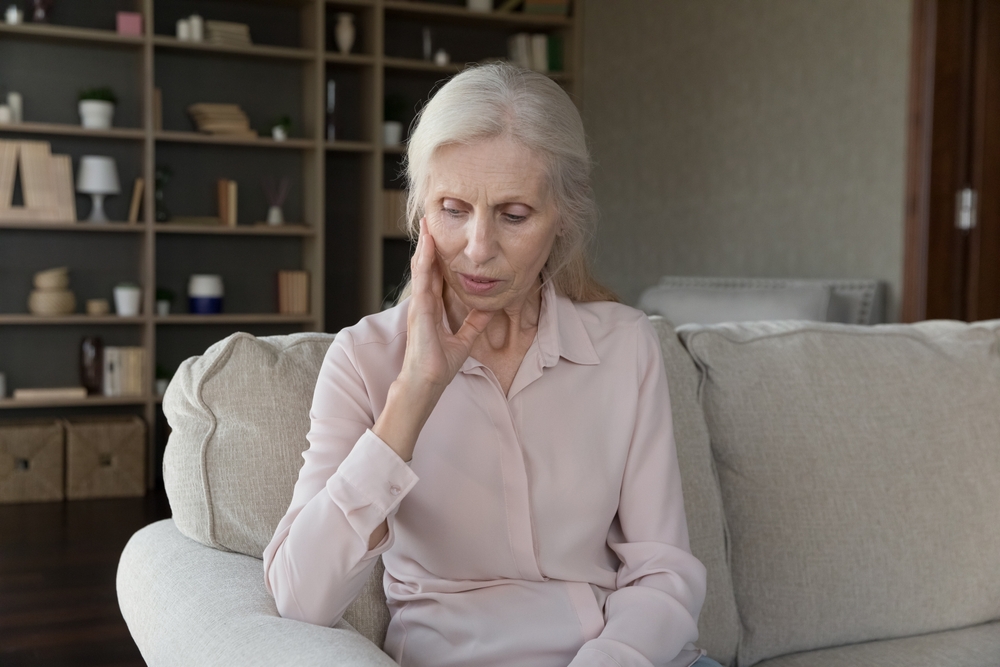Anxiety is a common mental health disorder that affects millions of people in India, and around the world. It is characterized by persistent feelings of worry, fear, and unease that can significantly impact a person’s daily life. While experiencing anxiety is a normal part of life, chronic anxiety and anxiety disorders can lead to a range of complications that can be detrimental to one’s mental and physical well-being.
It is essential to raise awareness about these complications to encourage people to seek help and manage their anxiety effectively.
Below are a few anxiety complications that individuals may face if they do not seek proper treatment and support:
1. Depression
One of the most common complications of anxiety is depression. Anxiety and depression often go hand in hand, and it is not uncommon for individuals with anxiety to also experience symptoms of depression. Anxiety can make people feel overwhelmed and constantly on edge, which can take a toll on their mental health. Over time, this can lead to feelings of hopelessness, helplessness, and extreme sadness, which are all symptoms of depression.
Depression can severely impact a person’s daily life, making it difficult for them to carry out their usual activities and responsibilities. It can also lead to a loss of interest in things that once brought joy, such as hobbies, socializing, and work. If left untreated, depression can worsen and significantly affect an individual’s overall quality of life.
2. Sleep Disturbances
Anxiety can also disrupt a person’s sleep patterns, leading to sleep disturbances such as insomnia. People with anxiety often have racing thoughts, making it challenging to fall asleep or stay asleep. This can result in chronic sleep deprivation, which can have several adverse effects on a person’s physical and mental health.
Lack of sleep can cause irritability, difficulty concentrating, and fatigue, which can further exacerbate anxiety symptoms. It can also weaken the immune system, making individuals more susceptible to illnesses. Getting adequate sleep is crucial for maintaining good physical and mental health, and those with anxiety may find it challenging to achieve this without proper treatment.
3. Executive Dysfunction
Executive dysfunction is a term used to describe difficulties with planning, organising, and managing tasks. It is a common complication of anxiety and can significantly impact a person’s daily life. People with executive dysfunction may struggle with time management, prioritizing tasks, and making decisions, which can lead to feelings of frustration and stress.
Anxiety can hinder a person’s ability to think clearly and logically, making it challenging to complete tasks and meet deadlines. This can have a significant impact on their work or academic performance, leading to feelings of inadequacy and low self-esteem.
4. Isolation
Anxiety can be a lonely experience, and it is not uncommon for individuals with anxiety to isolate themselves from others. They may avoid social situations, stop participating in activities they once enjoyed, and withdraw from friends and family. This isolation can lead to feelings of loneliness and contribute to the development of other mental health disorders such as depression.
Isolation can also make it challenging to seek support and treatment for anxiety. People may feel embarrassed or ashamed to seek help, which can further isolate them from much-needed resources and support systems. This can create a vicious cycle, where isolation worsens anxiety symptoms, and anxiety, in turn, leads to more isolation.
5. Chronic Pain
Anxiety can manifest itself physically, causing a range of symptoms such as headaches, muscle tension, and stomach problems. These physical symptoms can be painful and persistent, leading to chronic pain. People with anxiety may also experience chest pain, shortness of breath, and heart palpitations, which can be frightening and may result in seeking medical treatment.
Chronic pain can significantly impact an individual’s quality of life, making it challenging to carry out daily activities and causing emotional distress. It can also lead to a vicious cycle, where pain increases anxiety symptoms, and anxiety, in turn, worsens pain. Seeking proper treatment for anxiety can help manage these physical symptoms and improve overall well-being.
6. Substance Misuse
Anxiety can be overwhelming and often leads people to seek ways to cope with their symptoms. Unfortunately, some individuals turn to unhealthy coping mechanisms such as substance misuse. This can include excessive alcohol consumption, drug use, or even smoking.
While these substances may provide temporary relief from anxiety symptoms, they can have severe consequences in the long run. Substance misuse can lead to addiction, physical health problems, and strained relationships with loved ones. It is essential to seek healthy coping mechanisms and proper treatment for anxiety to avoid the harmful effects of substance misuse.
7. Suicidality
The most severe complication of untreated anxiety is suicidality. Anxiety disorders can significantly impact a person’s mental health, leading to feelings of hopelessness, worthlessness, and even thoughts of suicide. It is crucial to take any thoughts of suicide seriously and seek immediate help.
Suicidality is a complex issue, and there are often multiple factors that contribute to it. However, untreated anxiety can be a significant risk factor, and seeking proper treatment can help prevent thoughts of suicide and improve overall well-being.
Chronic anxiety and anxiety disorders can lead to a range of complications that can significantly impact a person’s mental, physical, and emotional well-being. It is crucial to seek proper treatment and support to manage anxiety effectively and prevent these complications from arising. If you or someone you know is struggling with anxiety, please remember that help is available, and seeking support is a sign of strength, not weakness.




